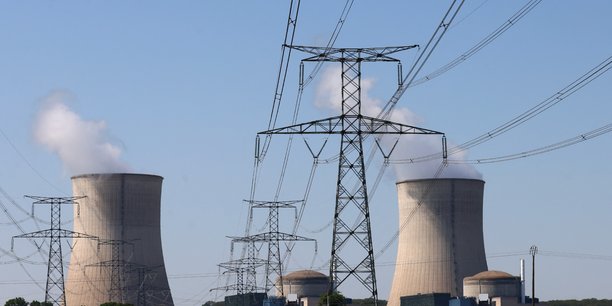Finally. After months of tense negotiations, the State and EDF will announce an agreement on electricity prices this Tuesday. Bringing together the CEO of EDF Luc Rémont, the Ministry of Economy and Finance Bruno Le Maire, and the Minister of Energy Transition, Agnès Pannier-Runacher, a press conference is planned this morning to detail the new regulatory model nuclear electricity prices, while the current Arenh mechanism (regulated access to historic nuclear electricity) will end at the end of 2025.
The energy company and the government agreed on an average selling price for nuclear electricity of 70 euros per megawatt hour (MWh). A reference price close to EDF’s nuclear production costs as desired by the government, estimated at around 70-75 euros, and at 60 euros by the Energy Regulatory Commission (CRE), which only covered the fleet current nuclear power and excluded the 6 new reactors that the executive wants to build.
A price supposed to preserve the competitiveness of French industry
While electricity is currently trading at around 120 euros per MWh for delivery in early 2025, this price of 70 euros is supposed to preserve the competitiveness of French industry (which will also be able to negotiate lower prices) and protect the individual invoices. It is also supposed to preserve the investment capacities of EDF, weighed down by an abysmal debt of 65 billion euros, estimated at 25 billion euros per year over the coming years. However, this average price is very far from the starting positions of EDF which was pushing a few weeks ago for a price close to 100 euros.
Tax income generated by prices exceeding 110 euros
To arrive at this average price of 70 euros, the State will tax almost all of the income generated by EDF as soon as it sells its electricity on the wholesale market above 110 euros. This is in order to redistribute them to consumers
This regulation, which allows public authorities to keep “ control of this market » as Emmanuel Macron recently announced, will complete two tools which will allow EDF to face the wall of investments: one consists of entering into long-term contracts with large energy-intensive industrialists, which would allow it to energy company to guarantee its investments and its customers to be less exposed to price volatility. The other, experimented by EDF, to sell batches of electricity in advance on the wholesale markets to its own competitors, alternative electricity suppliers. Launched in September, auctions brought out prices of 77 euros per MWh for delivery in 2027 and 83 to 85 euros per MWh for 2028. “CThey are no longer war prices at all. », Explained Luc Rémont to the Senate on Friday, in reference to the surge in electricity prices linked to the war in Ukraine, with peaks at 1,000 euros per MWh in August 2022 on the wholesale market.

